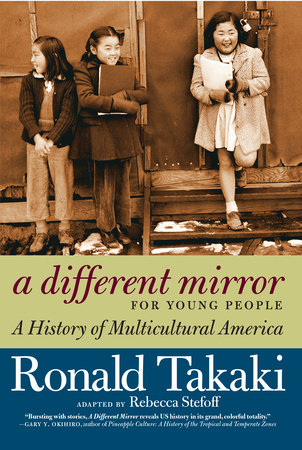The curriculum for the first-ever ethnic studies elective at Los Alamitos High School is now available for public viewing.
For months, supporters and opponents have spoken at Los Alamitos Unified School District Board of Education meetings debating the merits of the optional ethnic studies class without knowing exactly what it would offer.
On April 27, Deputy Superintendent Ondrea Reed briefly presented the course work at a Board meeting that drew hundreds of people. More than 90 people signed up for a chance to address the Board.
The curriculum has been on public preview since the meeting. The Board will vote on it June 1.
The overview of the ethnic studies course and its curriculum can be viewed on LosAl.org by typing “ethnic studies” into the search bar. Hard copies of the items are also available at the District’s office in Los Alamitos.
The optional course, named “Ethnic Studies: Cultural Experiences in the United States,” is expected to be offered in the Fall of 2021 as an elective for LAHS 11th and 12th graders.
“The intent of this course is to expand students’ awareness of the role of ethnic groups in a diverse American society in order to build community and solidarity across various groups and differences,” reads part of the course overview.
Reed said A Different Mirror for Young People: A History of Multicultural America by Ronald Takaki would serve as the “core text” for the class.
There are 15 supplemental items to support the textbook including primary source documents, such as the Universal Declaration of Human Rights from the United Nations, articles including, “The Impact of Media Stereotypes on Opinions and Attitudes Towards Latinos” from the National Hispanic Media Coalition and “What is White Privilege, Really?” by Cory Collins as well as multimedia videos including the documentary, RACE the Power of an Illusion by Larry Adelman and the video series on labor movements, Golden Lands, Working Hands, from the California Federation of Teachers.
The curriculum spans eight units starting with the first unit on the origins and history of Ethnic Studies. Another unit’s title is: Labels vs. Identity: Where Do Stereotypes Come From and How Do They Affect Society? Another unit focuses on community-based social movements in the 1950s and 1960s.
According to the course overview, students will take part in a number of projects including conducting an oral history interview with a family member or another adult in their lives “focusing on the concepts of race, ethnicity, nationality, and culture.” During a unit studying community organizing, students will be asked to create an art project. Students’ final assignment is to “design and implement a service learning project with a community organization in their neighborhood.”
The Board unanimously approved the concept for the ethnic studies course in February.
After Reed’s presentation last Tuesday, Board President Marlys Davidson praised her and the team, thanking them for how they developed the curriculum.
“I look forward to going over every piece of it because I know that you thoughtfully developed it in conjunction with other districts and every resource rather than just buying something that is mass produced and doesn’t reflect our community,” Davidson said.
Reed’s presentation on the curriculum came after more than two hours of public comments. That included statements from at least twenty LAUSD students speaking in favor of ethnic studies.
Students and other speakers also addressed a related effort from LAUSD; the adoption of social justice standards described as a resource for K-12 teachers to guide conversations about bullying, intolerance and racism.
Board members will consider the social justice standards, developed by LearningforJustice.org, a project of the Southern Poverty Law Center, at their May 11 meeting.
Both efforts were targeted by opponents at a Town Hall held at a church in Long Beach on April 20. One speaker at the event argued LAUSD’s ethnic studies class and social justice standards are guided by “critical race theory,” an academic discipline studying systemic racism.
Critical race theory has been attacked by some high-profile conservatives who say it is “anti-American.” A website promoting the Town Hall accuses LAUSD of introducing courses that “are filled with hate for America and all America stands for.”
In his Superintendent’s report at the April 27 meeting, Dr. Andrew Pulver pushed back, echoing a message sent to LAUSD families last Monday.
“I don’t know how to be more clear,” he said before spelling it out: “Critical race theory is not a foundation of this ethnic studies course.”
At the end of the meeting, LAUSD Board Vice President Diana Hill also addressed what has been said about district efforts, noting the ethnic studies elective is being developed at the request of students and families and is not politically driven.
“The idea that we are indoctrinating our students with any political agenda is absurd. It’s absurd. And that might happen in other places but that doesn’t happen here in Los Al,” Hill said.
Ethnic Studies Elective Curriculum Now on Public Preview
On June 1, the Los Alamitos Unified School District Board of Education will vote on the proposed curriculum for its first-ever ethnic studies elective to be offered at Los Alamitos High School. The following texts are what will be included in the course. The optional class for 11th and 12th graders has spurred passionate debate from speakers at recent LAUSD Board of Education meetings.
List from the Los Alamitos Unified School District. Links compiled by Jeannette Andruss.

